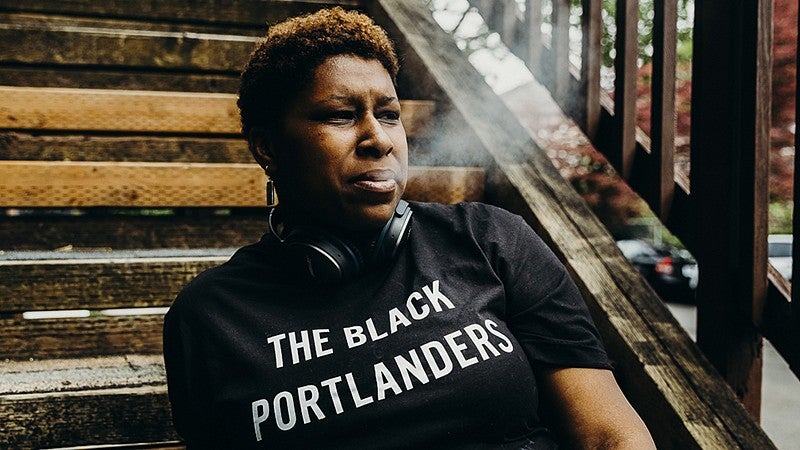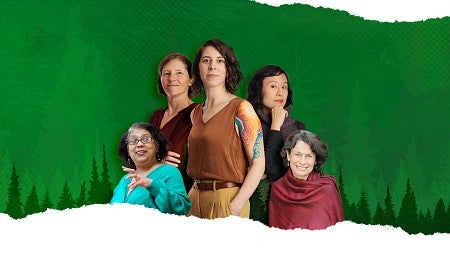
Cannabis Blogger: Journalism Alumna Covers New Industry
Tiara Darnell graduated from SOJC's strategic communication and multimedia journalism professional programs
By Emily Hoard • Photo by Ashley Anderson • January 11, 2019
3 min read
Legalization of cannabis is a win for a plant that’s been unfairly demonized for too long, Tiara Darnell says.
“However,” she adds, “legalization without consideration for the experiences of black and brown communities and justice for them misses the mark.”
Darnell, an African American and alumna of the University of Oregon’s School of Journalism and Communication in Portland, is concerned about the underrepresentation of people of color in the cannabis industry. With the planned release this spring of her podcast, High, Good People, she hopes to educate listeners about the experiences of people of color who are affected by this growing industry.
Darnell is the first student to graduate from both the school’s strategic communication and multimedia journalism professional programs, earning master’s degrees in 2017 and 2018, respectively. She pursued both so she could understand not only how to make multimedia content, but also the strategy behind it.
With High, Good People, Darnell explores the relationships between people of color and cannabis in the new age of legalization in a podcast—a series of digital audio files of stories, interviews, and other content that users download and play.
As host and producer, she’s finding stories, interviewing, transcribing, writing scripts, editing, and marketing for the podcast. Planned topics include cannabis as medicine, the racial baggage of the word “marijuana” that’s led some to favor the word “cannabis,” the culture of mothers who are stigmatized for using cannabis, and the culture of cannabis in rural Oregon.
According to Darnell, Oregon’s cannabis industry is predominately white, like the demographics of the state.
“The people who have or are granted access to the capital and resources to start new ventures in the cannabis industry tend to be white men and women, groups that were prosecuted at lower rates than people of color when the industry was illegal and existed underground,” Darnell says.
The podcast’s target audience is primarily millennials and Generation Xers, who tend to be receptive to learning about cannabis and could introduce the plant to older generations.
Darnell, who began using cannabis after it became legal in Oregon in 2014, has earned distinction for her knowledge of the plant and its history.
While working in 2017 at the Portland dispensary Farma as a “budtender”—a bartender for cannabis products—Darnell unknowingly served a customer who was a contributor for the cannabis magazine Leafly. Her approachable, science-based, top-notch customer service and knowledge of products so impressed the patron that he nominated Darnell as Oregon’s Budtender of the Year, which she won.
Darnell, a communications production coordinator for the City of Portland’s Bureau of Planning and Sustainability, created the pilot episode for the podcast as a student in Portland. Last summer, she took part in a fellowship and pitch competition for women of color podcasters through the digital music service Spotify; among 18,000 applicants, Darnell was one of 10 chosen for the fellowship.
Donna Davis, director of the strategic communication master's program at the UO's George S. Portland Turnbull Center, says she’s grateful to have worked with Darnell and admires her drive and determination.
“In the circumstances she’s in, she’s had to push harder than most just to be heard, and with her fierceness and bravery you can’t help but hear her when she’s telling you what she thinks and needs,” Davis says. “People should pay attention.”
Emily Hoard is a writer with University Communications in Portland.




